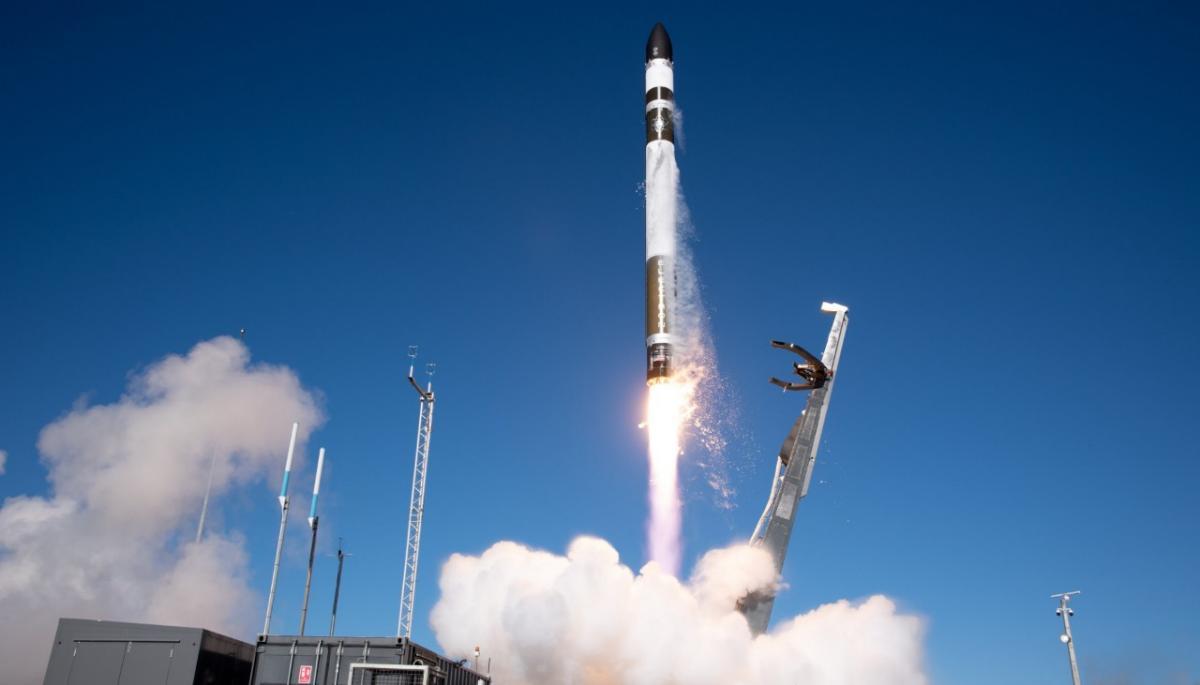
The Green Party says an upcoming Rocket Lab launch in New Zealand breaches national security and threatens the country's sovereignty and national interests.
Rocket Lab, which is United States-owned but based in New Zealand, is due to launch its next mission in mid-March at Māhia Peninsula. The mission will carry and deploy satellites for a range of commercial and government customers, including the US Army's Space and Missile Defense Command (SMDC).
The 'They Go Up So Fast' mission will carry the SMDC's Gunsmoke-J payload, which is described by Rocket Lab as "an experimental" satellite that "will test technologies that support development of new capabilities for the US Army".
Teanau Tuiono, the Green Party's spokesperson for security and intelligence, says he stands in support of Māhia locals and peace advocates who have spoken up about the town being used as "a launchpad by the US military".
"We support the call to suspend the granting of licences for space-launch activities on behalf of US military agencies and to reverse the Gunsmoke-J permit which is scheduled to be part of the next Rocket Lab launch," he says.
Tuiono says Gunsmoke-J is designed to improve US missile targeting capabilities during combat.
"The Government has a moral responsibility to make sure technologies sent into orbit by New Zealand companies from New Zealand soil do not assist other countries' armies to wage war," he says.
"The launch of a satellite that enables weapons of war to more precisely target people does not comply with the principle for authorising New Zealand space activity, approved by Cabinet in 2019. It states 'space activities should be conducted in a way that does not jeopardise human safety (including the safety of people in space)'."
He believes launches should only be supported if they have "peaceful purposes" and that "enabling the weaponisation of space" will make New Zealand a US military target.
Tuiono questioned Stuart Nash, the Minister for Economic and Regional Development, about the launch of the Gunsmoke-J payload during Parliament's Oral Questions last month. Nash said he received advice from the New Zealand Space Agency, which sits within the Ministry of Business, Innovation and Employment, who confirmed they assessed the application for launching the Gunsmoke-J satellite against a number of criteria in the Outer Space and High-altitude Activities Act.
"The assessment process is supported by multiple Government agencies that contribute to the regulation of space-related activities," Nash said.
"The New Zealand Space Agency processes each application on a case-by-case basis to ensure that the requirements of the Act are met."
He said this includes that:
- the payload will be operated safely and meet New Zealand's requirements on orbital debris mitigation
- the proposed operation of the payload is consistent with New Zealand's international obligations
- its operations do not pose a risk to national security
- its operations are not contrary to New Zealand's national interest.
Nash said he is unaware of the specific military capabilities of the SMDC satellite.
"The applicant in this case provided all the information that was deemed required by our space agency to make a recommendation to me," he said.
"The New Zealand Space Agency assessed the application and provided me with advice that, in fact, this satellite did not pose a risk to national security and the operations were not contrary to New Zealand's national interest."
Nash said he does believe that the Government has a moral responsibility to make sure technologies sent into orbit by New Zealand companies from New Zealand soil don't assist other countries' armies to wage war.
"What I will say is that when Cabinet analysed the process for signing off on satellite launches, we analysed this process very, very carefully before we signed off the relevant legislation," he said.
"And one thing I will say is we take our international obligations very seriously, which is why I say that the space agency assessed that this satellite did not pose a risk to national security, nor were the operations contrary to New Zealand's national interests."

In a statement, Nash says he would not approve any payload if, when assessed, it was found it would contribute to a nuclear weapons programme.
"This is consistent with our domestic and international legal obligations, as well as our proud and firm history of being nuclear-free," he says.
"Each payload permit application is also assessed for consistency with New Zealand's international obligations, including those covering nuclear non-proliferation."
Newshub has contacted the New Zealand Space Agency to respond to the Green Party's statement.
Morgan Bailey, Rocket Lab's head of communications, reiterates Nash's earlier statements that all applications for a payload permit are subject to assessments against a number of criteria in the Outer Space and High-altitude Activities Act.
She says no payload will be approved for launch if it does any one of the following:
- contributes to nuclear weapons programmes or capabilities
- has the intended end use of harming, interfering with, or destroying other spacecraft, or systems on Earth
- has the intended end use of supporting or enabling specific defence, security or intelligence operations that are contrary to government policy
- has the intended end use likely to cause serious or irreversible harm to the environment.
"The payload in question was assessed against these criteria and approved for launch. To date, all payloads launched from New Zealand have met these stringent requirements and received payload permits," Bailey says.

